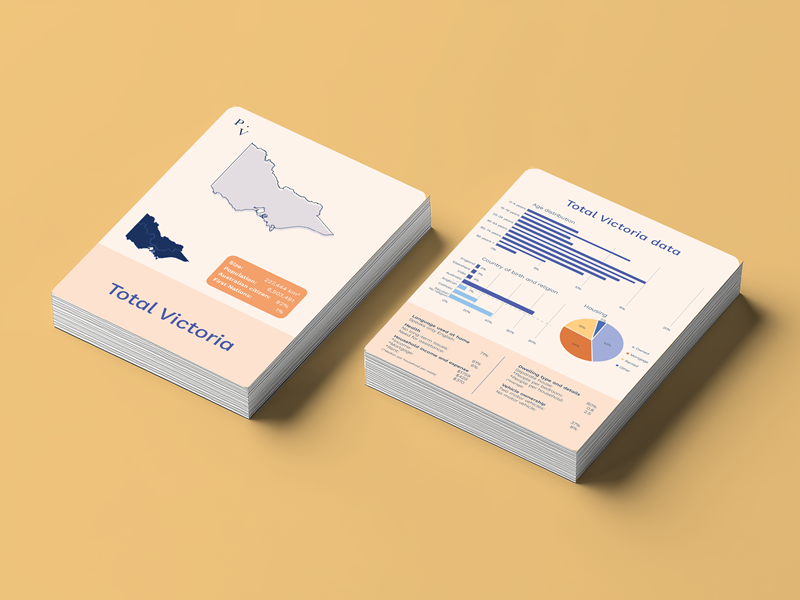Electorate data cards

Encourage students to explore how decisions can be made with this set of cards that use real ABS data.
The Electorate data cards consist of statistics for each of the 88 lower house electoral districts, and for all of Victoria, from the last Australian Census in 2021. The data provided is a snapshot of some key demographic information such as age distribution and country of births, as well as size of the electorate, population, housing types, and some income and expense details.
Students can use the cards to consider how members of parliament make decisions for their electorates or can be used across disciplines such as maths and geography to explore population distributions and/or statistical analysis.
The data available on the cards is also available in the Excel spreadsheet, as well as a second sheet with additional data that may be of interest.
Download the Electorate data as Excel
The data for cards has been generated from the Australian Bureau of Statistics and the Parliamentary Library. Download the explainer for how the data was put together.